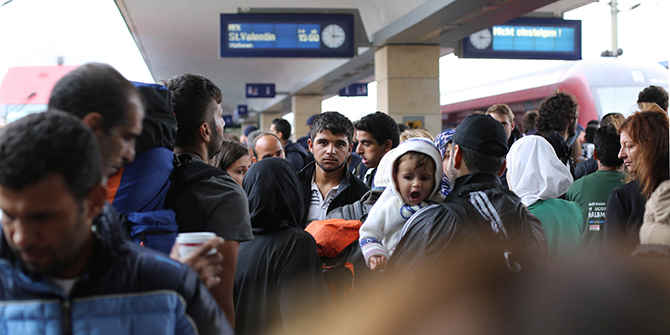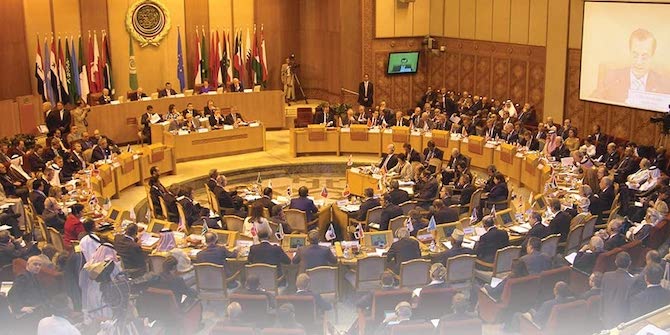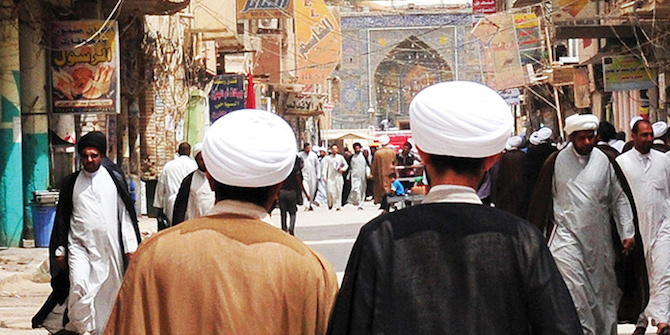by Christian Lekon
As Europe is struggling with an unprecedented wave of refugees, especially from the Middle East, Citizenship in Transition: New Perspectives on Transnational Migration from the Middle East to Europe is a timely book. The implications of this migration for the concept of citizenship are the main motif holding the different contributions together. The volume, edited by Annemarie Profanter and Francis Owtram, is divided into three sections addressing this topic from different perspectives.

The section on Citizenship, Modernity and Cultural Identity starts with an overview by Kristian Coates Ulrichsen of the structural problems of the Middle East. He identifies these problems, specifically the deficits in the education system, as push factors for migration to Europe. Nigel M. Greaves uses Antonio Gramsci’s concept of hegemony (i.e. the interests of particular groups masquerading as being good for society as a whole) in juxtaposing the ideology of European liberalism with that of Islamic faith. In contrast, Annemarie Profanter questions the concept of a homogenous ‘Europe’ and the accompanying call for a ‘European Islam’.
The following three articles fall under the heading of Citizenship, Education and Law. Christine Difato shows how the educational policies of the UK and Germany were shaped by the contradictory principles of human rights, economic efficiency and social cohesion, thereby leading to less than perfect outcomes for the education of migrant children. Necla Ozturk provides an in-depth comparison of the Turkish citizenship laws of 1964 and 2009, arguing that the latter, with all its shortcomings, is much better adapted to a globalised world. Sotirios S. Livas vividly illustrates the depressing living conditions of Afghans and Pakistanis in Greece, where they face unsympathetic bureaucracy and xenophobic outbursts.
The contributions to the third section entitled Citizenship and Second Generation Networks paint a somewhat more upbeat picture. Khawlah Ahmed’s microstudy on young women of Yemeni origins in the UK shows that integration into British society is well compatible with undiminished attachment to another country. Ulrika Mårtensson presents the encouraging results of a dialogic encounter between the Church and a leading Muslim organisation in a Norwegian city. Francesco Mazucotelli presents some immigrant organisations in Lombardy and their quest for societal integration, which is made more complicated by the localisation of Italian immigration policies.
All these articles are relevant to the overall citizenship topic of the volume. The traditional concept of citizenship is bound with that of the nation – a culturally homogenous community of equals, sharing rights and duties as citizens of one sovereign state. During the 19th and much of the 20th century, the citizenship issue revolved around the successful struggle of certain marginalised groups – namely workers, women and ethnic/religious minorities – to be recognised as full members of this community. Today, there is a new type of marginalised groups in the shape of immigrants with cultural roots that are often – as in the case of the Muslims – different from those of mainstream society. Ending this marginalisation through full societal integration might simply be effected through extending citizenship as understood traditionally to these migrants, i.e. in the same vein as the previous groups have become integrated into one, and only one, nation-state.
However, in their introduction, the editors Annemarie Profanter and Francis Owtram point towards a different option, that of transnational citizenship. This refers to a situation when migrants find their identity in, and direct their commitment to, both their host country and to their (or their parents’) country of origin. In other words, citizenship and its accompanying duties need not be restricted to one state only. This links with the more general concept of transnationalism within the academic discipline of International Relations. Instead of seeing international relations as the stage on which sovereign states cooperate with or rival each other, transnationalism stresses the relevance of actors and institutions transcending the borders of the nation-state.
Within this volume, the contributions of Profanter (against a purely European Islam), Ozturk (double citizenship in Turkey) and Ahmed (mixed British-Yemeni identities) come perhaps closest in envisaging such a transnational understanding of citizenship. Most of the other articles focus on factors that may either foster (Mårtensson on interfaith dialogue) or hinder (Difato on education, Livas on squalid living conditions, Mazucotelli on localisation of immigration policies) the successful integration of migrants, whether through traditional or transnational citizenship. This points to deficiencies within Europe, which principally could be rectified. However, somewhat more sobering perspectives are provided by the first two contributors: By implication, the deep-rooted problems of the Middle East as identified by Ulrichsen are unlikely to be solved by citizenship issues in Europe. Likewise, by pointing out the hypocritical and contradictory features of Europe’s liberal hegemonic ideology, Greaves’ article might drive to the conclusion that integration through citizenship is not as easy as one would like to think.
Naturally, reading this collected volume poses questions rather than provides answers. However, the articles contained therein provide a multitude of useful insights that may contribute to finding these answers. As current events show, the issue of Muslim migration into Europe will remain present for the foreseeable future. At a time when Europe’s policies towards migration appear to be rather helpless, hectic and uncoordinated, this well-researched and balanced book helps clarify some of the issues at stake and thus deserves a wide readership.
 Christian Lekon is Head of the Department of International Relations at the European University of Lefke (Cyprus) and the author of the book Time, Space and Globalization: Hadhramaut and the Indian Ocean Rim 1863 – 1967 (Gleichen-Zurich: Muster-Schmidt, 2014). He is currently writing a monograph on modernist reform movements in Islam, Hinduism and Confucianism, c. 1870 – c. 1940.
Christian Lekon is Head of the Department of International Relations at the European University of Lefke (Cyprus) and the author of the book Time, Space and Globalization: Hadhramaut and the Indian Ocean Rim 1863 – 1967 (Gleichen-Zurich: Muster-Schmidt, 2014). He is currently writing a monograph on modernist reform movements in Islam, Hinduism and Confucianism, c. 1870 – c. 1940.







Readers of the LSE Middle East Centre blog may also be interested to know that the book is also Cambridge Scholars Publishing, October ‘Book of the Month’. Please see their website for further details including information on their ‘60% discount on this best-selling title’ during October. http://www.cambridgescholars.com/book-of-the-month-october-2015